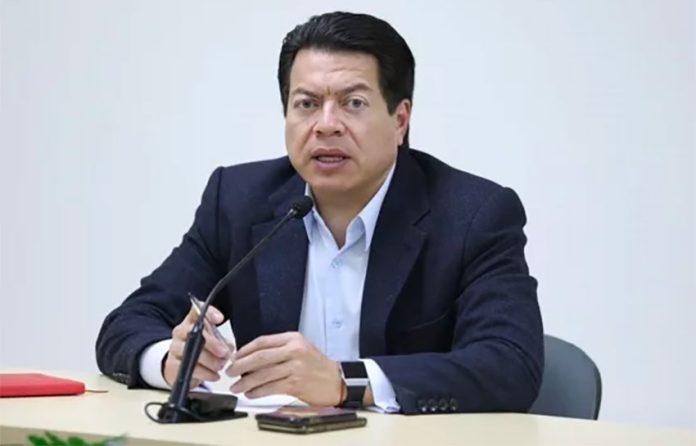Former president Felipe Calderón protected the Sinaloa Cartel while in office between 2006 and 2012, charges a lawmaker with Mexico’s ruling party.
Mario Delgado, leader of the Morena party in the lower house of Congress, accused Calderón of providing protection to the cartel formerly led by Joaquín “El Chapo” Guzmán through his security secretary, Genaro García Luna, who was arrested in the United States last week on charges that he accepted bribes from the Sinaloa Cartel.
The result of the protection afforded to the cartel was “a spiral of violence and criminality” that continues to this day, Delgado told a press conference on Tuesday.
The lawmaker also charged that Calderón launched the so-called war on drugs shortly after he took office in late 2006 to distract people from the “huge” fraud in the presidential election the same year.
President López Obrador narrowly lost the vote in an election he claims was rigged in Calderón’s favor.
“He used the war as a distractor so that the country would forget that he stole the 2006 election,” Delgado said.
“. . . It turned out to be extremely costly for us,” he added before repeating his claim that Calderón protected the Sinaloa Cartel.
“. . . Maybe that protection provided certain balances but in the end complicity with crime . . . turned out to be extremely costly. There were thousands of deaths and disappearances in the last 12 years, violence and blood, all to help a criminal group,” Delgado said.
Calderón last week denied any knowledge of García’s alleged collusion with the Sinaloa Cartel but he has not responded to the accusations made by the Morena leader.
Delgado said the current government’s security strategy is completely different to that followed by Calderón and his successor, Enrique Peña Nieto, citing the creation of the National Guard and “very aggressive social investment” as key differences.
The López Obrador administration also aims to avoid the use of force whenever possible, a strategy epitomized by the decision to release one of El Chapo’s sons in Culiacán, Sinaloa, in October rather than engage in a direct conflict with the Sinaloa Cartel.
The new strategy “will yield positive results,” Delgado said, charging that the high levels of violence currently plaguing Mexico are the “last swipes of the tail of a system in which there was complicity between the government and some criminal groups.”
The federal government no longer “makes pacts with crime,” the lawmaker said.
“. . . What we have to do, from my point of view, is let the federal government’s strategy mature,” Delgado added, emphasizing that the number of National Guard members on the ground will double to 120,000 next year.
“The capacity of the Mexican state to be in territories where crime has gained a lot of ground is being recovered.”
Source: El Universal (sp)
